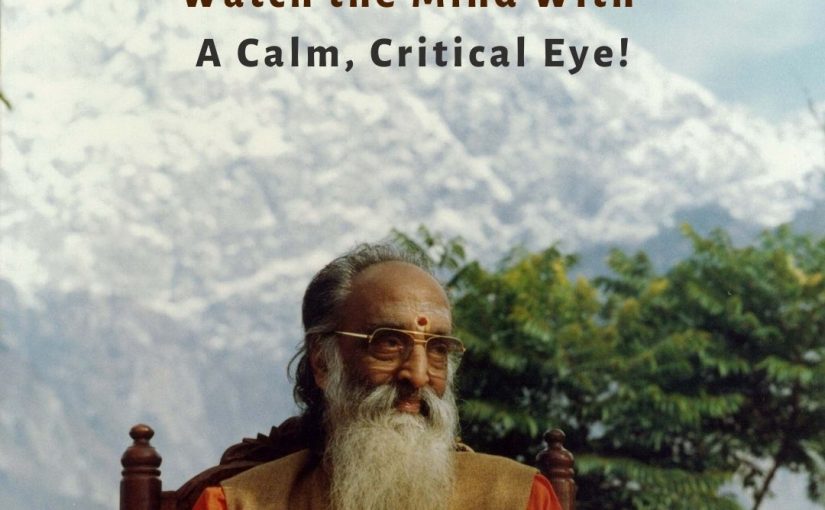Watch the mind with a critical eye – The most effective punishment for the mind is for you to remain as though apart from the mind, and with a critical eye watch its meaningless somersaults.
When a mother finds that her child is uncontrollable in spite of all previous tactics, she stands back and merely watches the child at his mischief with a sad look. The child steals a few glances at the mother and, reading the sorrow in her face, comes to his senses.
He feels ashamed of himself, stops his mis-behaviour, and comes to hug at the mother’s skirts, demanding a little special attention. At this moment, no intelligent mother will start scolding, but will attend to the child’s wishes, which are, in fact, no different from her own.
When the mind is uncontrollably agitated and runs about wildly, you can identify yourself with your intellect and watch the mind with sympathetic criticism.
The mind may still wander for some time, but when it realises that it is directly under the observation of a disinterested but critical intellect, it becomes, as it were, self-conscious and ashamed of itself and retires from its questionable vocation to apply itself to meditation.
This technique is called in the scriptures of Vedānta, the technique of witnessing the mind (saksi-bhava).
Any one of the above methods should answer your problems at a given moment. A diligent practitioner will discover new methods to circumvent all novel mischiefs of the mind.
In all these practices, the most important factor is a deep sense of sincerity, a great conviction born of faith and understanding, and a hardy sense of seeking, at once adventurous and revolutionary. Without these noble qualities of the head and the heart, nothing can be expected of your spiritual practices.
Strive hard. Act diligently. Meditate regularly. Discriminate continuously. Be good. Be kind, tolerant, merciful, and all-loving. Eradicate weaknesses, steadily growing in your inner strength. Keep brahmacarya, good company, and good health. And meditate.
